Why Aromatherapy is Important
Are you looking for a natural way to reduce stress, improve sleep, boost your mood, and enhance your overall well-being?
Aromatherapy might be the answer you’ve been searching for.
In this article, we will explore what aromatherapy benefits aromatherapy is, how it works, the benefits it offers, the different types of aromatherapy techniques, the essential oils commonly used, and how to use them safely.
So, sit back, relax, and discover the world of aromatherapy with us.
Key Takeaways:
What is Aromatherapy?
Aromatherapy is a holistic healing treatment that uses natural plant extracts, known as essential oils, to promote health and well-being. These plant-derived oils are used to enhance physical and emotional health through various therapeutic applications.
Rooted in traditional alternative medicine practices, aromatherapy has evolved to become a popular complementary therapy in modern healthcare settings. Essential oils play a significant role in aromatherapy, as they are extracted from aromatic plants and possess potent fragrances and therapeutic properties. These oils are applied in different ways, such as inhalation or topical application, to stimulate the senses and promote relaxation, reduce stress, improve sleep quality, and alleviate various physical discomforts.
How Does Aromatherapy Work?
Aromatherapy works by stimulating the olfactory system and engaging the brain’s limbic system, which is responsible for emotions, behaviors, and long-term memory. The essential oils used in aromatherapy are often combined with carrier oils to ensure they are properly diluted for safe and effective use.
Carrier oils play a crucial role in the world of aromatherapy, as they are utilized to dilute highly concentrated essential oils, making them suitable for direct skin application or diffusion.
Carrier oils are typically plant-based oils extracted from seeds, nuts, or kernels, such as jojoba, coconut, or almond oil. These carrier oils act as a medium to “carry” the essential oils onto the skin, preventing any potential skin irritation or sensitivities that can occur when using undiluted essential oils.
What are the Benefits of Aromatherapy?
Aromatherapy offers a wide range of benefits for both physical and emotional well-being. From reducing stress and anxiety to boosting immunity and relieving pain, the therapeutic benefits of essential oils have been recognized through research and practical applications.
Essential oils such as lavender, peppermint, and tea tree are commonly used in aromatherapy for their calming, anti-inflammatory, and antiseptic properties. For instance, inhaling lavender oil can help alleviate stress and promote relaxation, while applying diluted peppermint oil topically may aid in headache relief. Eucalyptus oil is often used to support respiratory health and clear congestion, making it a popular choice during cold and flu seasons.
Reduces Stress and Anxiety
One of the primary benefits of aromatherapy is its ability to reduce stress and anxiety levels. Essential oils like lavender have been shown to have calming effects on the nervous system, promoting relaxation and a sense of well-being.
Aromatherapy, a holistic healing practice, involves using essential oils extracted from plants to enhance physical and mental well-being. Lavender essential oil, in particular, has gained popularity for its anxiolytic properties that help reduce stress and anxiety.
Studies have indicated that the inhalation of lavender essential oil can activate brain receptors associated with the emotion-regulating neurotransmitter, thereby inducing a calming effect. Learn more about why aromatherapy is done.
To incorporate aromatherapy into your stress relief routine, you can add a few drops of lavender oil to a diffuser or warm bath, or even apply it topically with a carrier oil for a soothing massage.
Improves Sleep Quality
Aromatherapy has been found to improve sleep quality in individuals with various sleep conditions. Certain essential oils, when diffused or applied before bedtime, can promote relaxation and create a conducive environment for restful sleep.
One of the most notable essential oils for enhancing sleep quality is why aromatherapy is better, known for its calming and soothing properties. Chamomile is another popular choice due to its sedative effects. Incorporating these oils into your bedtime routine can be done by adding a few drops to a diffuser or mixing them with a carrier oil for a relaxing massage.
To make the most of aromatherapy for better sleep hygiene, establish a consistent bedtime routine. Start by creating a calming atmosphere in your bedroom, dimming the lights, and unwinding with a few minutes of deep breathing or gentle stretching. Utilizing essential oils in this routine can signal to your brain that it’s time to wind down and prepare for a restful night’s sleep.
Boosts Mood
Aromatherapy is effective in boosting mood and improving emotional well-being by targeting the brain’s emotional center. Essential oils like citrus or peppermint can uplift spirits, increase energy levels, and promote a positive outlook.
Another popular essential oil known for its mood-boosting properties is lavender, which is widely used for its calming effects and ability to reduce stress and anxiety levels. The use of a diffuser to disperse these scents into the air can create a relaxing ambiance, perfect for unwinding after a long day.
Relieves Headaches and Migraines
Aromatherapy has shown promise in providing relief from headaches and migraines. Certain essential oils like peppermint or eucalyptus, when applied topically or inhaled, can help alleviate headache symptoms and promote relaxation.
Peppermint oil, with its refreshing scent and cooling effect, is especially effective in soothing tension headaches. Massaging a few drops of diluted peppermint oil onto the temples can offer quick relief.
Eucalyptus oil is known for its decongestant properties and can be beneficial for sinus headaches when applied to the chest or inhaled via steam.
Lavender oil, prized for its calming aroma, is valuable for stress-related headaches. A few drops on a cloth placed over the forehead can ease the discomfort.
Enhances Immunity
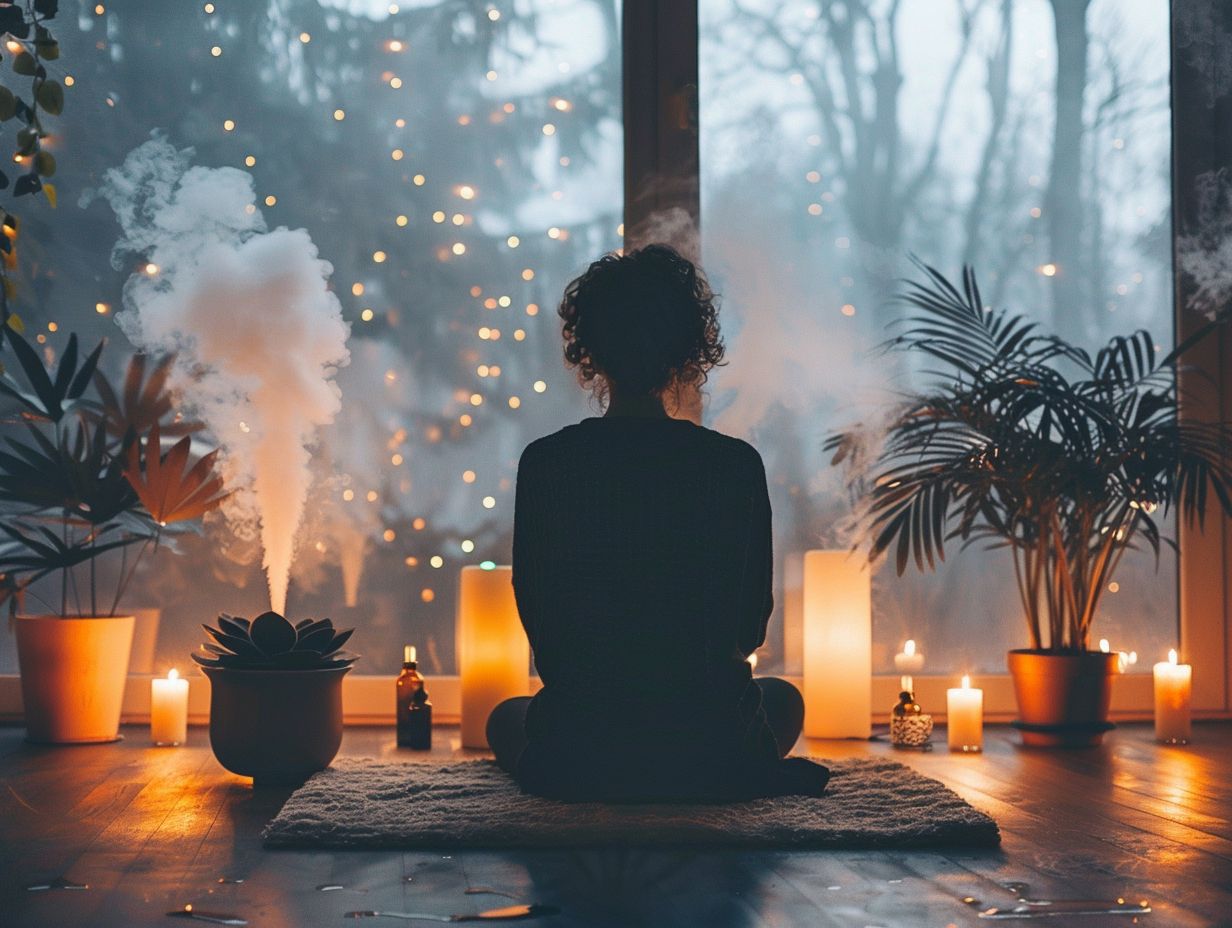
Aromatherapy can enhance immunity through the antimicrobial activity of certain essential oils. Oils like tea tree or eucalyptus possess natural antibacterial properties that can help support the body’s defense mechanisms.
Tea tree oil, for instance, is renowned for its potent antimicrobial and antiseptic effects, making it a valuable asset in fighting off infections and strengthening the body’s immunity. Similarly, eucalyptus oil is known for its ability to clear respiratory passages and boost the immune system, making it a popular choice during cold and flu season. Incorporating these essential oils into aromatherapy practices can not only aid in preventing infections but also promote overall health and well-being.
Eases Pain and Inflammation
Aromatherapy offers relief from pain and inflammation through the analgesic properties of certain essential oils. Oils like lavender or peppermint can help reduce discomfort, soothe sore muscles, and alleviate inflammatory conditions.
These essential oils work by stimulating the olfactory system, which then sends signals to the brain, triggering the release of endorphins, the body’s natural painkillers.
Peppermint oil, for example, contains menthol, known for its cooling effect that can numb pain sensations. Lavender oil, on the other hand, is renowned for its calming properties, reducing stress-related tension that often exacerbates pain. When used in aromatherapy, these oils can be inhaled, applied topically, or used in baths to create a relaxing and healing experience.
What are the Different Types of Aromatherapy?
Aromatherapy encompasses various techniques for administering essential oils to achieve therapeutic benefits. These techniques include inhalation, topical application, and aerial diffusion, each offering unique ways to experience the effects of aromatherapy.
Inhalation is a direct method that involves breathing in essential oils through methods like steam inhalation, diffusers, or simply inhaling from the bottle. This technique provides quick access to the benefits of the oils, impacting the respiratory and nervous systems directly.
Topical application, on the other hand, involves diluting essential oils with carrier oils and applying them to the skin. This method allows for absorption through the skin, targeting specific areas for localized relief.
Aerial diffusion disperses essential oils into the air using devices like diffusers or sprays, creating a subtle and continuous effect in the environment. This method is great for enhancing mood, purifying the air, or creating a relaxing ambiance.
Inhalation
Inhalation is a common method of aromatherapy that involves breathing in essential oils to promote respiratory disinfection and emotional well-being. This technique can be done through direct inhalation or using diffusers for a more extended effect.
Direct inhalation is a simple and effective way to experience the benefits of essential oils. This method entails inhaling essential oils directly from the bottle, on a cloth, or through hands cupped over the nose.
Another method is indirect inhalation, where oils are dispersed into the air through diffusers, steam inhalation, or spritzing in the environment.
Whether through a personal inhaler or a room diffuser, essential oils like eucalyptus, peppermint, and lavender are popular choices for their respiratory support and calming properties.
Topical Application
Topical application involves applying essential oils directly to the skin for localized effects and systemic absorption. Proper dilution and skin compatibility are essential considerations when using this method for aromatherapy.
In aromatherapy, the benefits of how aromatherapy can help you are seen in the topical application of essential oils, which is highly effective as it allows the oils to penetrate the skin and reach the bloodstream, offering targeted relief.
When diluting essential oils for topical use, it’s crucial to follow recommended guidelines to prevent skin irritation or adverse reactions. Conducting a patch test by applying a diluted oil to a small area of skin can help determine any individual sensitivity before widespread application. This precaution ensures a safe and personalized aromatherapy experience tailored to your needs.
Aerial Diffusion
Aerial diffusion involves dispersing essential oils into the air using diffusers or nebulizers to create a fragrant and therapeutic atmosphere. This method is effective for improving air quality and enhancing mood in indoor spaces.
aromatherapy benefits play a crucial role in this process by breaking down the oils into tiny particles that can be easily dispersed into the air. These devices come in various types such as ultrasonic, nebulizing, heat, and evaporative diffusers, each offering distinct benefits in terms of diffusion efficiency and aroma intensity.
When these aromatic molecules are released into the air, they interact with the olfactory system, triggering responses in the brain that can influence emotions and overall well-being.
What Essential Oils are Used in Aromatherapy?
Aromatherapy utilizes a variety of essential oils for their therapeutic properties and distinctive scents. Common oils like lavender, peppermint, eucalyptus, tea tree, and lemon are frequently used in aromatherapy practices for their diverse benefits.
Aromatherapy, known for its calming and soothing properties, is often used to promote relaxation and alleviate stress.
Peppermint oil is invigorating and can help with headaches and enhancing focus.
Eucalyptus oil is commonly used for respiratory conditions due to its decongestant and expectorant qualities.
Tea tree oil is renowned for its anti-inflammatory and antibacterial properties, making it a popular choice for skincare and treating various skin issues.
Lemon oil is refreshing and uplifting, often used to boost mood and improve mental clarity.
Lavender
Lavender essential oil is renowned for its calming and relaxing properties, making it a popular choice for stress relief, anxiety reduction, and sleep enhancement in aromatherapy practices.
When used in aromatherapy, lavender essential oil can promote a sense of tranquility and peace, helping to alleviate feelings of tension and unease. Its soothing scent is known to have a positive impact on the nervous system, aiding in reducing symptoms of stress and anxiety.
To incorporate lavender oil into your daily routine for relaxation, consider adding a few drops to a diffuser or a warm bath. Alternatively, you can mix it with a carrier oil, such as coconut or almond oil, for a calming massage.
For emotional well-being, inhaling the gentle aroma of lavender essential oil can uplift your mood and promote a sense of balance and harmony. Diffusing the oil in your living space or adding a drop to your pillow can help enhance relaxation and improve the quality of your sleep.
Peppermint
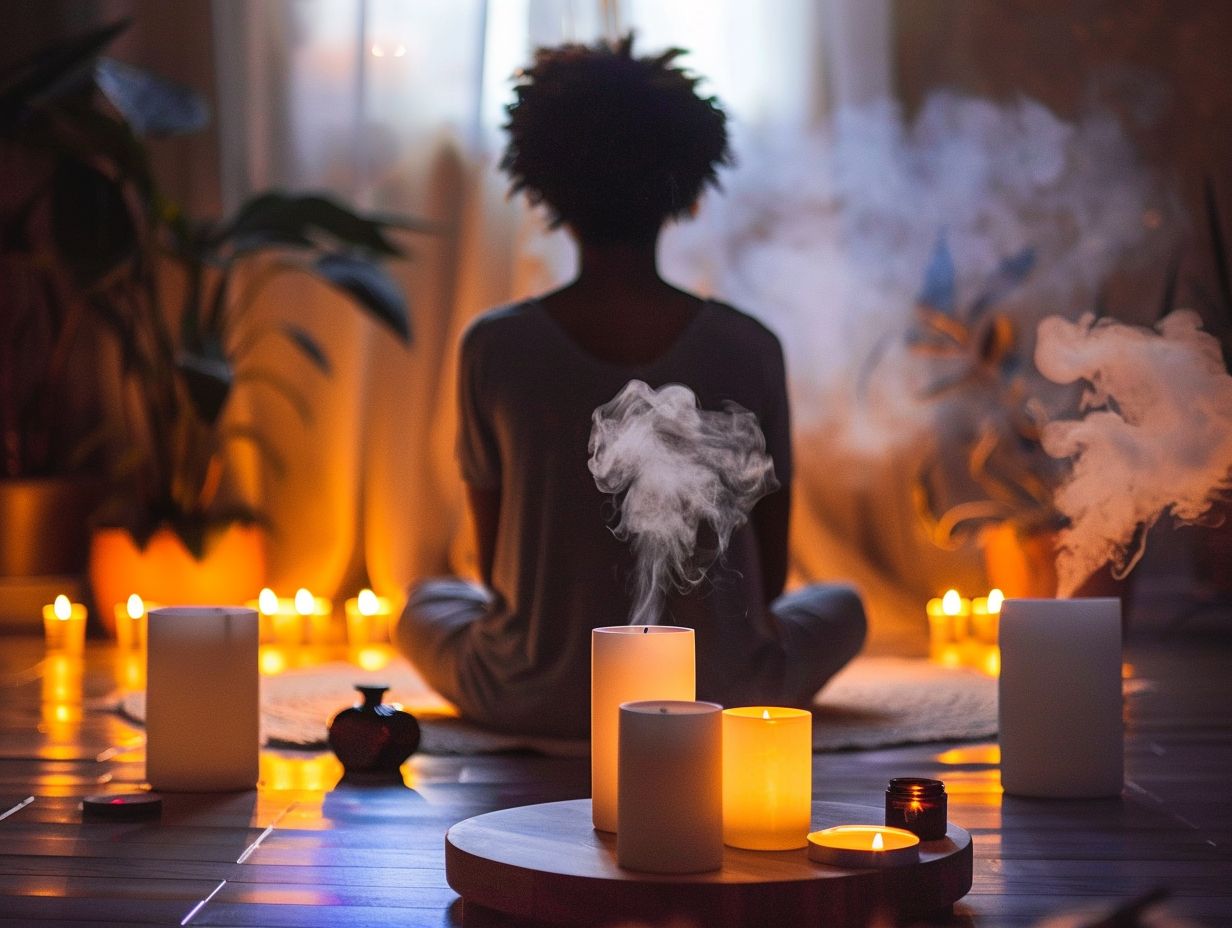
Peppermint essential oil is known for its invigorating and cooling effects, making it a popular choice for headache relief, nausea reduction, and mental clarity in aromatherapy applications.
Its refreshing aroma is not just a delight for the senses but also holds numerous therapeutic benefits. The revitalizing properties of peppermint oil extend beyond its scent, offering relief from muscle aches and pains when used in massage oils or diffusion. Studies have shown that inhaling peppermint oil can help improve focus, memory, and overall cognitive function, making it a valuable tool for enhancing mental performance.
Eucalyptus
Eucalyptus essential oil is valued for its respiratory benefits, as it can help clear congestion, ease breathing, and support overall respiratory health in aromatherapy practices.
One of the key advantages of using eucalyptus oil in aromatherapy is its decongestant and expectorant properties, making it a popular choice for managing respiratory issues. Learn more about aromatherapy benefits.
When diffused, the aromatic molecules of eucalyptus oil can help open up the airways, allowing for easier breathing and relieving congestion in the chest and sinuses.
In addition, incorporating eucalyptus oil into a steam inhalation or chest rub can provide direct relief by loosening mucus and promoting coughing to expel phlegm, aiding in clearing the respiratory tract.
Tea Tree
Tea tree essential oil is recognized for its potent antimicrobial and antiseptic properties, making it a valuable ingredient for skin care, wound healing, and immune system support in aromatherapy regimens.
When used topically, tea tree oil can help in treating acne, eczema, and fungal infections due to its ability to kill bacteria and fungi. Its anti-inflammatory properties can reduce redness and swelling, promoting a clearer complexion. Along with its skin benefits, tea tree oil can be used as a natural household cleaner, offering a non-toxic alternative to chemical cleaners. Diluted tea tree oil can also be effective in relieving itchy insect bites and minor burns. It is important to always dilute tea tree oil before applying it directly to the skin to prevent irritation. Consultation with a healthcare professional is recommended when using tea tree oil for therapeutic purposes.
Lemon
Lemon essential oil is known for its refreshing and cleansing properties, making it a popular choice for skin care, mood enhancement, and immune support in aromatherapy applications.
One of the key benefits of lemon oil in aromatherapy is its astringent properties, which help to tone and rejuvenate the skin, making it a valuable ingredient in facial cleansers, toners, and masks. Lemon essential oil is prized for its detoxifying effects on the skin, aiding in the removal of impurities and promoting a clear complexion. Learn more about aromatherapy benefits.
The uplifting aroma of lemon oil also makes it a go-to choice for emotional well-being. Its citrusy scent is known to uplift the mood, reduce feelings of stress and anxiety, and promote aromatherapy benefits of mental clarity and focus.
Lemon oil has versatile applications in personal care and wellness routines. It can be used in diffusers to freshen the air, added to massage oils for a refreshing and invigorating experience, or mixed with carrier oils for DIY skincare products.
How to Use Aromatherapy Safely?
Using aromatherapy safely involves proper dilution of essential oils, conducting patch tests to check for skin reactions, and consulting with a healthcare provider or certified aromatherapist for individual treatment plans.
Proper dilution is crucial when using essential oils in aromatherapy to prevent skin irritations or adverse reactions. Diluting essential oils with carrier oils reduces the risk of sensitization.
Patch tests provide a simple way to assess your skin’s reaction to a specific oil before widespread use. It is always recommended to seek guidance from a qualified professional, such as an aromatherapist, to ensure the safe and effective utilization of essential oils for therapeutic benefits.
Dilute Essential Oils
Essential oils should always be properly diluted before use to prevent skin irritation or adverse reactions.
It is crucial to remember that the high concentration of essential oils can be too potent for direct skin contact, thus dilution is paramount. Carrier oils such as jojoba or coconut oil not only dilute the essential oils but also offer additional benefits for the skin, such as moisturization and nourishment.
When blending essential oils with carrier oils, the recommended dilution ratio is typically 2-3 drops of essential oil per teaspoon of carrier oil for topical application. This way, the potent nature of the essential oil is tempered, making it safer for direct contact with the skin.
Do a Patch Test
Before applying essential oils to larger skin areas, it is advisable to perform a patch test on a small area to check for any allergic reactions or sensitivities. This test helps ensure that the oil is safe for use on the skin.
-
To conduct a patch test with essential oils, start by diluting the oil with a carrier oil like coconut, jojoba, or almond oil. The typical ratio is 1-2 drops of essential oil to 1 tablespoon of carrier oil.
-
Apply a small amount of the diluted oil mixture to a clean patch of skin, such as the inner forearm. Cover the area with a bandage or gauze to prevent the oil from evaporating.
-
Leave the patch on for 24 hours, observing any signs of redness, irritation, itching, or swelling. If any of these reactions occur, remove the patch immediately and wash the area with mild soap and water.
Consult with a Professional
For personalized aromatherapy guidance and treatment plans, it is recommended to consult with a certified aromatherapist or healthcare provider. These professionals can create individualized aromatherapy regimens based on your specific needs and health conditions.
Professional advice from aromatherapy experts is crucial for ensuring the safe and effective incorporation of essential oils into your wellness routine. Aromatherapists possess in-depth knowledge of aromatherapy principles and can offer insights into the therapeutic properties of various essential oils. By consulting with these professionals, you can benefit from specialized recommendations that cater to your unique situation.
Moreover, aromatherapists can guide you in selecting the most suitable essential oils and blends to address specific concerns such as stress relief, sleep issues, or skin conditions. Their expertise extends beyond just recommending oils; they can also provide valuable advice on proper dilution rates, application methods, and potential contraindications.
Conclusion
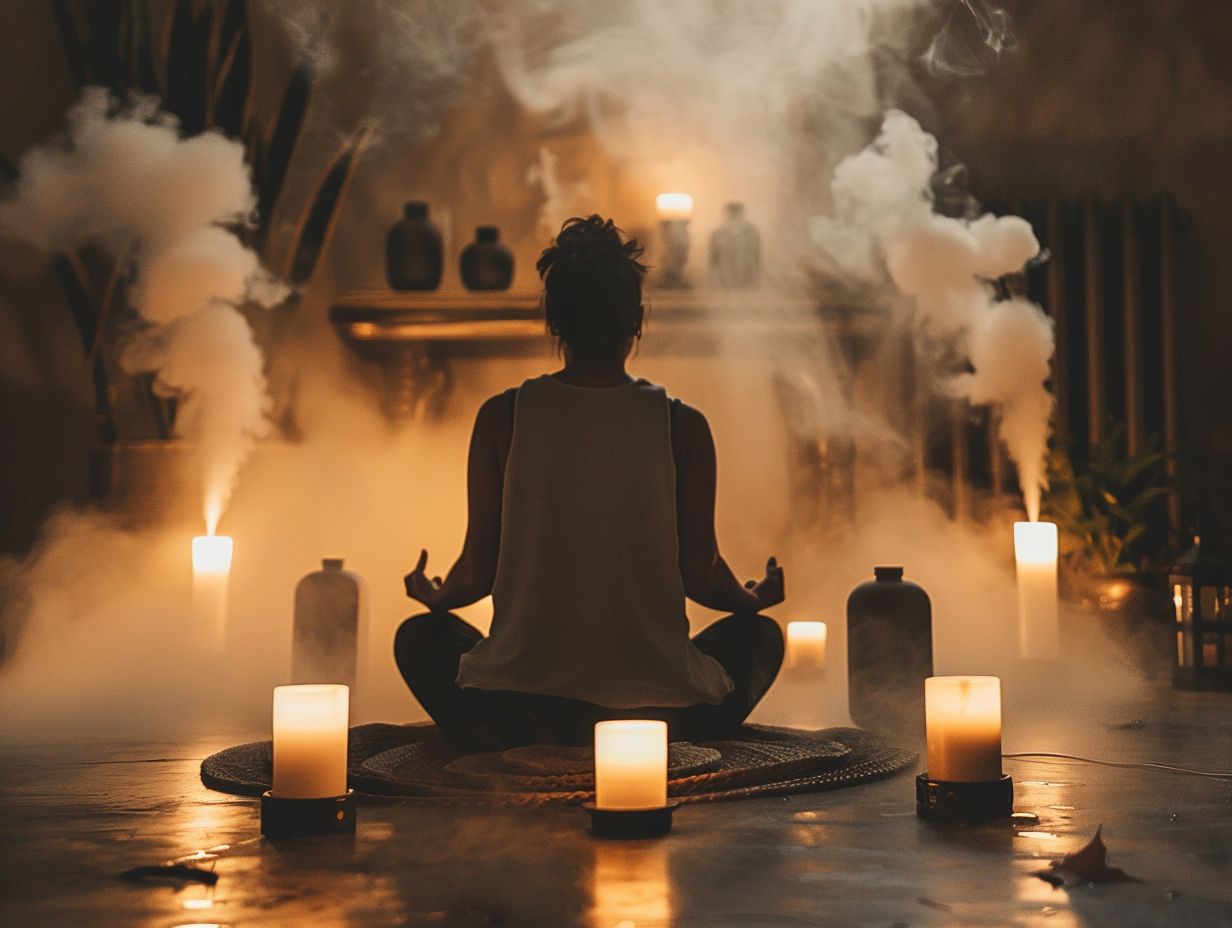
Aromatherapy is known for its ability to alleviate various physical ailments, such as headaches, muscle pains, and skin conditions, by leveraging the capabilities of plant extracts. The soothing scents of essential oils can help reduce stress, anxiety, and improve mood, making it a valuable tool for mental well-being. The practice of aromatherapy involves inhaling the aromatic molecules or applying diluted oils topically, allowing the body to absorb the therapeutic properties.
Aromatherapy is often used in conjunction with other healing modalities to create a harmonious balance between mind, body, and spirit, promoting a state of holistic wellness.”
Frequently Asked Questions
Why is Aromatherapy Important?
Aromatherapy is important because it can help improve physical, mental, and emotional well-being through the use of natural plant extracts.
How does Aromatherapy work?
Aromatherapy works by stimulating the olfactory system, which then sends signals to the brain, triggering a variety of physiological responses.
What are the benefits of Aromatherapy?
The benefits of Aromatherapy include stress relief, improved sleep, pain management, enhanced mood, and boosted immune system.
Can anyone use Aromatherapy?
Yes, Aromatherapy can be used by anyone, but it is important to consult with a certified aromatherapist for proper usage and potential allergies.
What are some common essential oils used in Aromatherapy?
Some common essential oils used in Aromatherapy include lavender, peppermint, eucalyptus, tea tree, and lemon.
Is Aromatherapy only for relaxation purposes?
No, Aromatherapy can be used for various purposes such as pain management, improving cognitive function, and boosting the immune system. It can also be used in conjunction with other medical treatments for certain conditions.

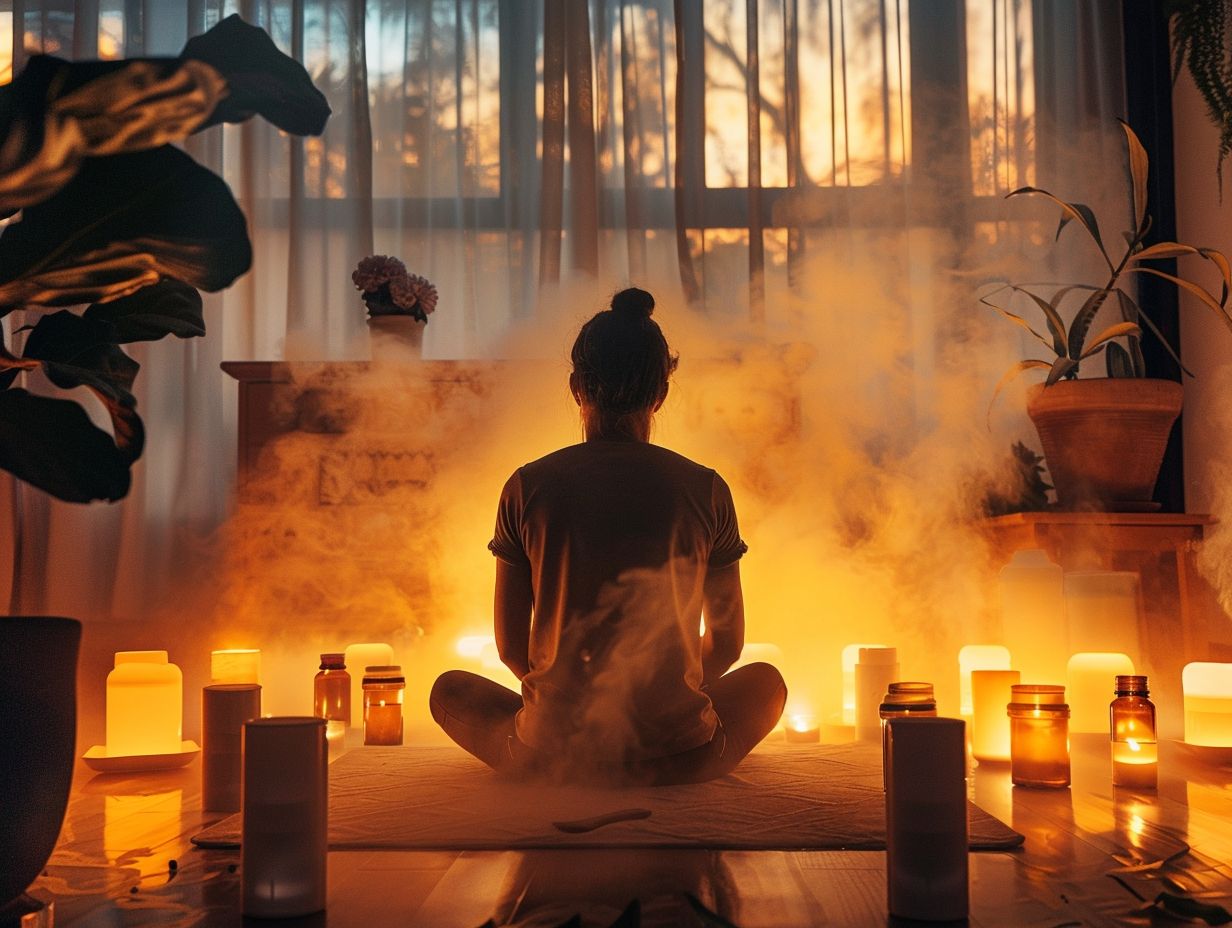
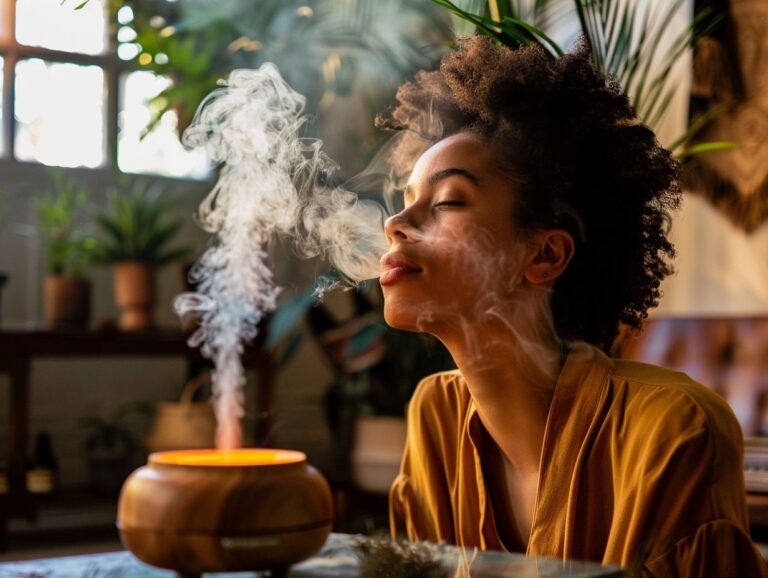
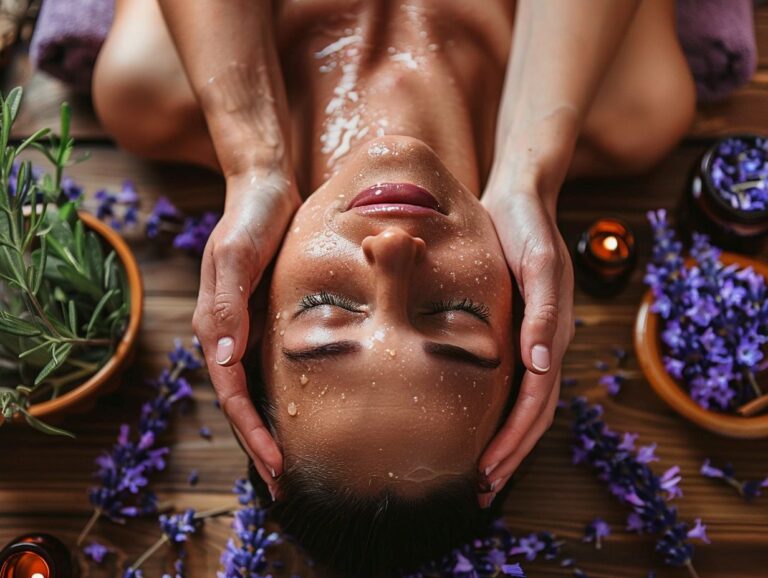



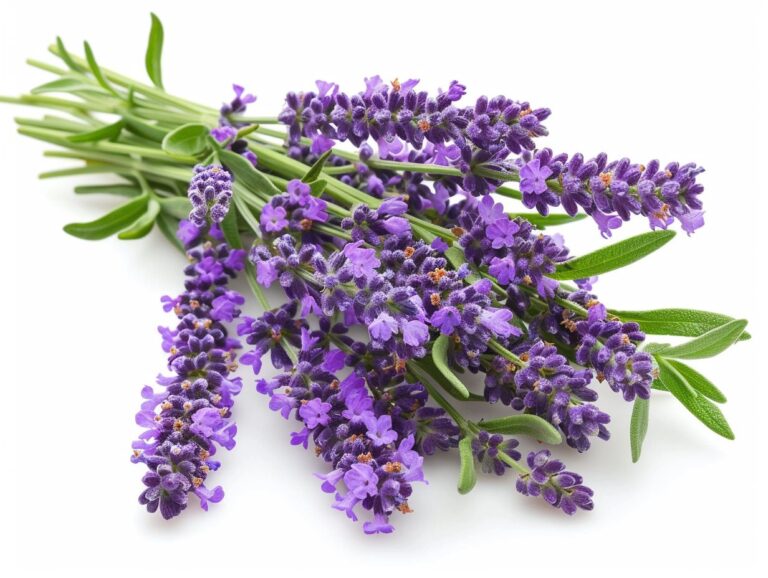
6 Comments